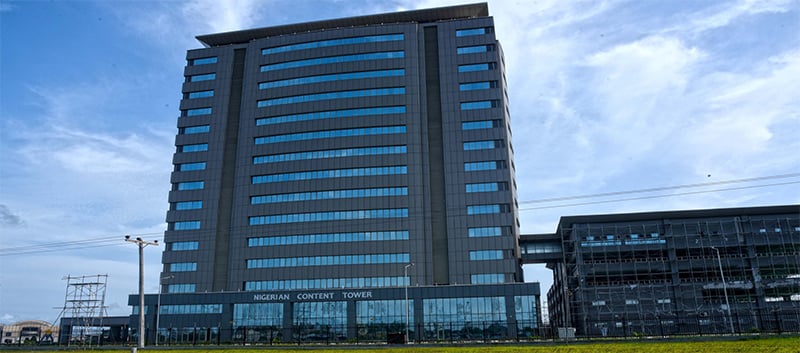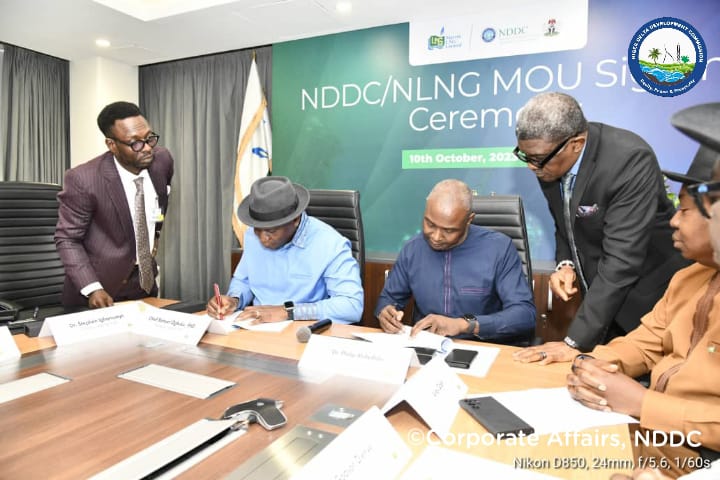BY PETER T. UDO-AKPAN
Despite the campaign, led by the industrialized wikodestern countries, to make fossil fuels history in response to global warming, the role of petroleum remains significant in the global energy mix. The oil and gas industry is still the main engine of the world’s energy machine. Oil is the most widely used fuel, responsible for around a third of global energy consumption, and together with gas, accounts for about 60% of global consumption. And recent developments are likely to help maintain or even increase the central importance of oil as the world’s primary fuel. For instance, the impact of the ongoing Israel-Palestine conflict, like the Russia-Ukraine war, is likely to move the hands of the clock back with regard to the deadlines for phasing hydrocarbons out.
Nevertheless, the race is on. It is safe to say that, based on the existential challenges posed to the planet by climate change as well as the enormous investment in alternative energy by the most powerful nations of the world, the die is cast. Sooner than later, petroleum and other fossil fuels will go the way of the dinosaur. Given this reality, it is critical that Nigeria’s energy policies and, more importantly, policy execution reflect the reality that the market for Nigeria’s primary revenue source may be, at best, insignificant in a couple of decades. So the country has two urgent challenges. The first is to maximize the utilization of oil revenues in a manner that increases the contribution of the sector to the national treasury while tackling the great damage done to the environment by oil prospecting. The second is to ensure that, after decades of poor management, the oil industry leaves sustainable benefits behind for the country when the inevitable moment comes and oil is no longer the king of fuels.
This is the context in which to appreciate the mandate and initiatives of the Nigerian Content Development and Monitoring Board (NCDMB), one of the most hardworking and impactful agencies in the oil sector, nay, the country. The mission of the Board goes to the heart of the country’s priorities for the oil and gas industry, the goose that lays the golden eggs of our revenues: “to “promote the development and utilization of in-country capacities for the industrialization of Nigeria through the effective implementation of the Nigerian Content Act”. The vision of NCDMB is to be the catalyst for the industrialization of the Nigerian Oil and Gas Industry and its linkage sectors. One could say that the job of this organization will help to determine if the well-documented “oil curse” will become a sustainable blessing for Nigeria. The alternative is unthinkable.
Under its current management led by Executive Secretary and former Shell top shot, Simbi Wabote, NCDMB has focused like a laser on the inflection points of the oil and gas sector in pursuit of lasting positives for the country. The strategy seeks, simultaneously, to maximize the profitability of the sector at a time when the country is confronted with serious economic challenges while expanding a durable Nigerian footprint by supporting and empowering Nigerian businesses and entrepreneurs. The 10-year strategic roadmap launched in 2018 is the powerful tool NCDMB is using to drive the attainment of these priorities.
Advertisement
The determination of the agency which was established in 2010 to achieve a paradigm shift in the structure, ownership, and operations of Nigeria’s oil and gas sector in favor of the country’s strategic economic priorities is underscored by some of its headline achievements. From a base of almost zero at inception, the share of indigenous players such as Seplat, AITEO, and ROTON in oil production is now 15%. Indigenous firms are also responsible for about 60% of the domestic oil supply. That’s not all. In-country value retention (participation of Nigerian companies in the industry) has increased from 26% in 2017 to 54% in 2022.
NCDMB is building some ambitious targets on the solid foundation of these impressive achievements. The projection is that by 2027, Nigerian content will have increased to 70% and that $13 billion (65%) of an estimated $20 billion spent in the sector would be retained in the country. It is also projected that by that year, an estimated 300,000 jobs would have been created by the agency since its establishment through the many initiatives that it deploys to practicalize its vision of encouraging national self-sufficiency in the industry. It is also expected that by then, there will be major fabrication yards and manufacturing hubs in the country. These yards and hubs are practical emblems of technology expansion and technology transfer in the industry – a major priority of NCDMB’s current leadership.
The thoroughness and rigor of the NCDMB approach is also noteworthy. The Board encourages a level playing field for Nigerian firms interested in taking advantage of its structures and initiatives. The NOGIC JQS (Nigerian Oil and Gas Industry Content Joint Qualification System) exemplifies this. This is the electronic platform for data consolidation on all major activities in the Nigerian Oil and Gas Industry which also facilitates access to services provided by NCDMB. As of the end of June 2023, the portal had 290,000 individual records, 10,400 service company records, 107 operator company records, and about 600 Marine Vessel records – a significant achievement.
Advertisement
In the expansive landscape of NCDMB achievements, some initiatives stand out. The FPSO Integration Facility, a critical oil and gas infrastructure anchored on previous oil and gas projects is one. A superb legacy project conceived by NCDMB, the FPSO integration quay was built by Samsung Heavy Industries Limited with six modules fabricated for the first time, by a Nigerian firm. Another Nigerian firm produced the high-quality paints used for the entire project. The first of its kind in the Gulf of Guinea, the SHI-MCI FPSO integration facility has the capacity to fabricate 60,000 metric tonnage of steel and is available for future FPSO construction, integration, and maintenance.
Another significant product is the establishment of two world-class pipe mills to manufacture HSAW line pipes, which are in high demand in the industry. One is located in Abuja, the SCC Pipe-Mill with an installed capacity of 270,000 MT per annum; and the second is in Lagos, Yulong Pipe-Mill with the capacity to manufacture 400,000MT HSAW line pipes per annum. The construction of three oil and gas parks – in Odukpani, Cross River State; Emeyal-1, Bayelsa State; and Ikwe in Akwa Ibom State – is also a remarkable development. As Executive Secretary Wabote explained during NCDMB 10th anniversary celebrations, the central objective is to encourage “manufacturing of critical oil and gas tools, equipment and accessories” in the country. He went further: “The parks will operate as a site and service centers, with 24/7 gas-powered electricity supply for companies located therein. The oil and gas parks will significantly promote in-country manufacturing and technology transfer from original equipment manufacturers (OEMs) to their local partners.”
The establishment of pipe coating companies in the country is another dividend of the practical, Nigeria-focused vision of NCDMB’s leadership. The Board’s actions in this respect, including banning the importation of coated pipes led to the establishment of pipe coating factories. The result? Enhanced capital retention, job creation, and skill enhancement for Nigerians.
The development and improvement of the local supply chain in the sector is also a major foundational accomplishment. NCDMB has boosted opportunities for Nigerian firms, many of whom now execute projects previously reserved for foreign companies. The $200 million Nigerian Content Intervention Fund, managed by the Bank of Industry, has enabled indigenous firms to have access to low-interest capital which helps to drive down costs and boost competitiveness. As a result, there has been an exponential rise in the number and growth of local firms that own a growing number of businesses and fabrication yards. Most services that used to be performed by foreign firms, some overseas, are now being executed by Nigerian firms run by Nigerians in Nigeria.
Advertisement
Institution of new progressive policies to encourage world-class development. Robust regulation to create space for Nigerian enterprise. Support and empowerment of worthy local efforts and initiatives. Targeted incentives to help Nigerian businesses scale up in expertise and size. Investment in strategic areas to give Nigerians businesses a fighting chance. This agency is boosting both the breadth and depth of Nigerian participation in the sector in a structured way that will continue to enhance the strategic interests of the country for years to come. Indeed, NCDMB is a good reason to be optimistic about the future of Nigeria’s oil industry in whatever direction the winds of change blow.
Udo-Akpan is a policy analyst
Views expressed by contributors are strictly personal and not of TheCable.
Add a comment






